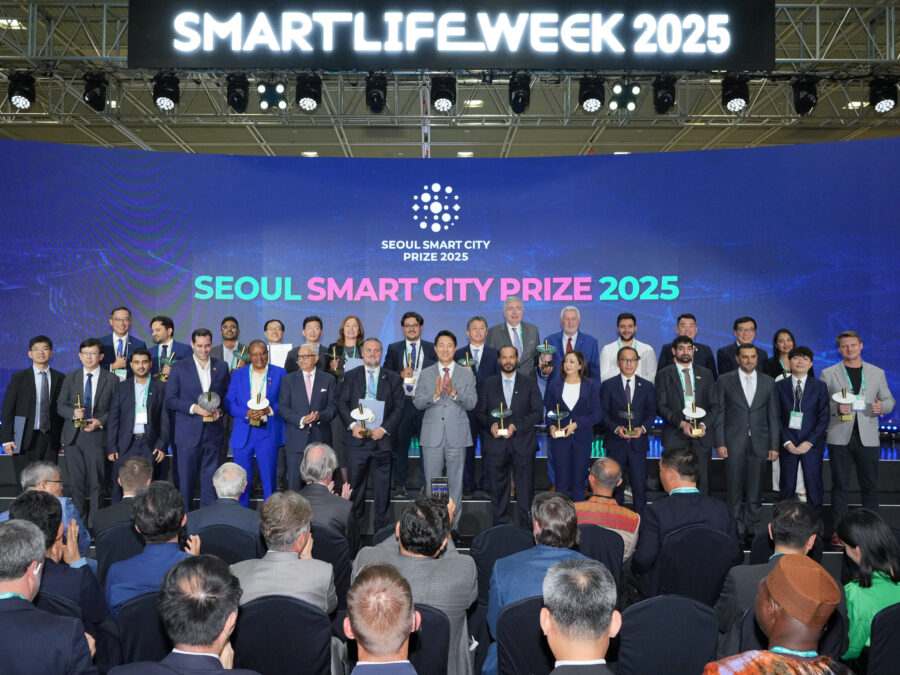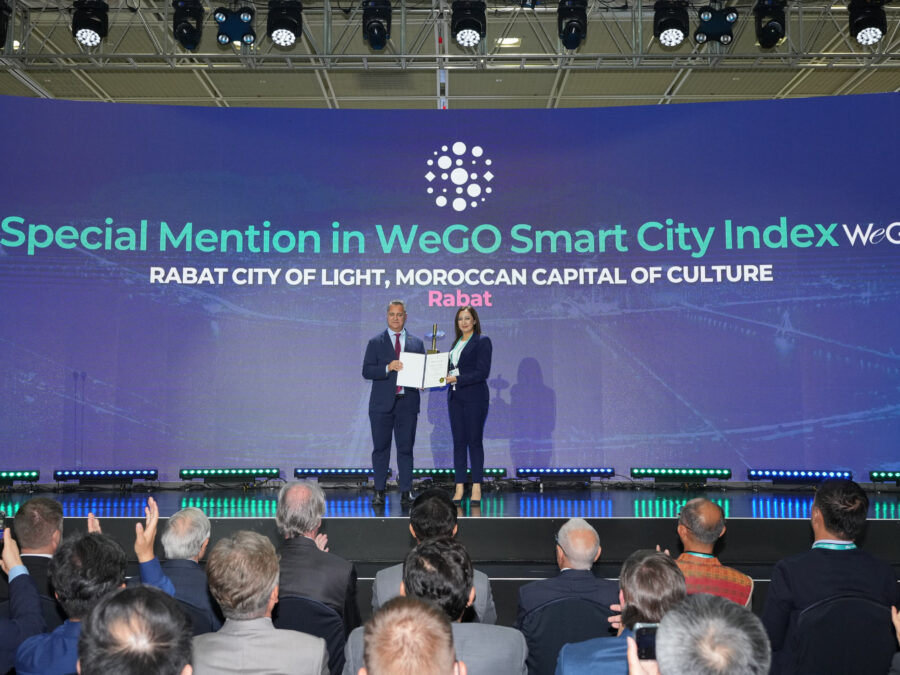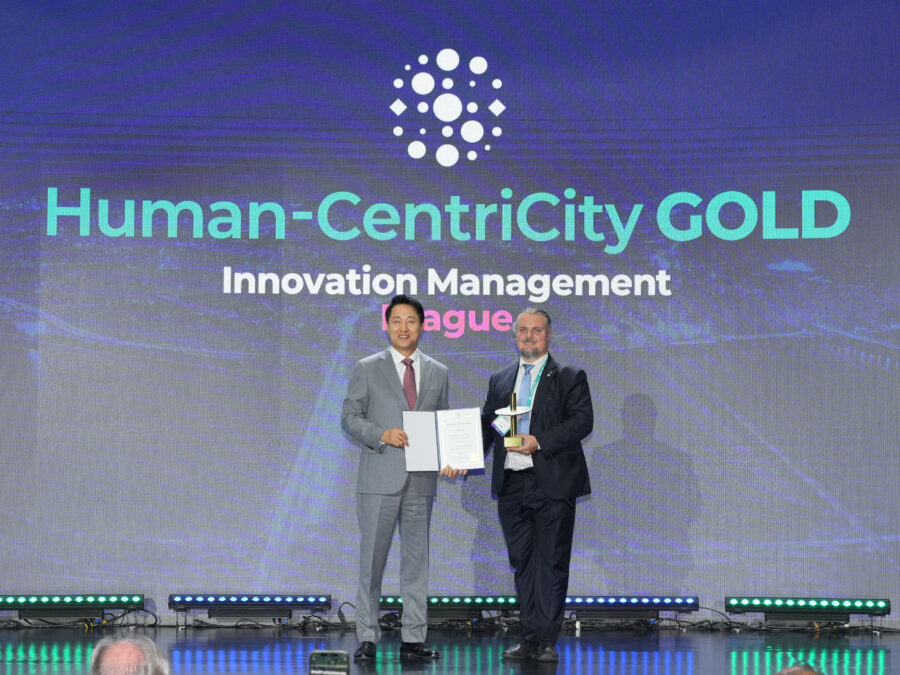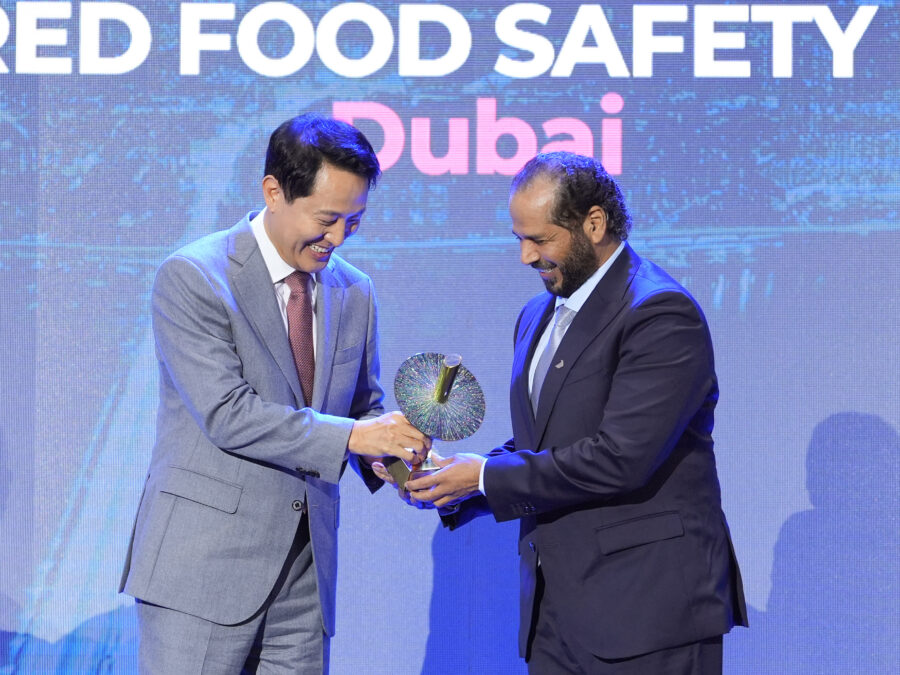Seoul Smart City Prize Winners Receive Awards from WeGO
Seoul, September 30th — In partnership with its President City, Seoul Metropolitan Government, the World Smart Sustainable Cities Organization (WeGO) hosted the third Seoul Smart City Prize Ceremony at COEX Convention & Exhibition Center in Seoul. The ceremony recognized outstanding smart city initiatives that prioritize human-centric and technological innovation.
Among the top winners were Dubai and Prague, as well as the mayors of Cali and Fullerton. Out of 220 submissions from Africa, Asia, Europe, Latin America, Middle East, North America and Oceania 45 semi-finalists were invited to attend the Seoul Smart City Prize Ceremony. WeGO acknowledged 21 cities, corporations, institutions, and individuals across Tech-InnovaCity, Human-CentriCity, Special Mention, and Leadership categories for their exceptional contributions to smart city development.
These awards were presented by Seoul Smart City Prize High Council and Steering Committee Members, as well as Mayors. The opening remarks were conducted by Ajit Manocha, CEO & President, SEMI. The prize introduction was given by Danil Kerimi, Former Director of Digital Economy and Global Technology Policy. World Economic Forum. Prize Presenters included M. Jae Moon, Professor at Department of Public Policy and Management at Yonsei University and former Co-Chairman of the Steering Committee; Alexandre Hedjazi Head of Geneva Center of Excellence on Smart Sustainable Cities, UNECE; Charles Morrison. Former President at East-West Center in Hawaii; Sungbin Yim President of Favors.Co and Vice-Chairman for Global Communications at the Institute of Smart City & Architecture; Youngkun Kim, AutoXML Founder and 3K Group Chairman; Nicholas You, Executive Director at Guangzhou Institute for Urban Innovation; Thomas J. Byrne, President & CEO of The Korea Society; Jordi Vaquer, Secretary General of Metropolis; and distinguished Mayors, including Oh Se-hoon, Mayor of Seoul; Benjamin Magalong, Mayor of Baguio, Winner of 2024 Human-CentriCity Gold Prize; Frederick Siao, Mayor of Iligan, Winner of 2024 Special Mention GGGI Prize.
In the Tech-InnovaCity category, Dubai emerged as the Gold finalist with its ambitious AI-Powered Food Safety Ecosystem, a six-year digital transformation project that integrates generative AI, real-time data, and user-friendly tools to modernize food safety management and public health. Other strong contenders include Hong Kong, where the Lands Department and AECOM are building a high-resolution 3D Digital Map to address complex urban challenges, and Paris Est Marne & Bois, which is leading climate resilience efforts through the WaterSecure Swim & Flood project along the Marne River. Bronze recognitions went to Pohang’s TABOSO platform, which combines cooperative mobility with local currency payments; Praeferre in London for Tedamine, an AI-powered privacy compliance solution; and Rio de Janeiro’s App Civitas, an integrated data platform improving public safety through advanced analytics of millions of daily surveillance readings. Large institutions and corporations were also represented, including Aramco’s “City Brain,” which leverages generative AI and digital twin technology for smarter urban management, and Sofia’s GATE Institute, which is creating a citywide digital twin to guide evidence-based planning.
Equally compelling stories emerged in the Human-CentriCity category, which honors people-centered approaches to city life. Prague received the Gold prize with its Innovation Management model, a citywide strategy for developing inclusive and sustainable solutions aligned with the needs of residents. Taoyuan City in Taiwan was recognized for its “Juvenile 3P Model,” which integrates data systems and cross-departmental cooperation to predict, prevent, and protect at-risk youth. In Africa, Nairobi’s Konza Smart City Project was selected as a Silver finalist for building Kenya’s first large-scale knowledge and technology hub. Bronze acknowledgments went to Tanzania’s Internet Society for its SmartJiji Public Health Project, which uses digital tools to detect and prevent disease outbreaks; Kocaeli in Türkiye for its integrated civic governance system promoting real-time citizen participation; and Sharjah in the UAE for its “Muwasah” program, which humanizes and simplifies death-related administrative procedures with compassion and efficiency. Two institutional projects also stood out: the Lviv Agglomeration in Ukraine, leading recovery and social inclusion for war-affected communities, and Colombia’s Fundación Pequeños Pasos, which is empowering indigenous Wayuu communities with bilingual digital tools for education and civic participation.
The Leadership Prize this year celebrates two mayors who have demonstrated bold vision. In Cali, Colombia, Mayor Alejandro Eder has spearheaded a smart city strategy that not only expands digital infrastructure but also strengthens citizen trust through data-driven transparency and youth-focused cultural innovation. Meanwhile, in the United States, Mayor Fred Jung of Fullerton has transformed the region’s energy future by launching the Orange County Power Authority. In just two years, this initiative has cut two billion pounds of carbon emissions, a reduction equal to taking more than 220,000 gas-powered cars off the road.
Finally, the Prize also granted Special Mentions to projects of exceptional impact. Special Mention partners included SEMI Prize awarded by Semiconductor Equipment and Materials International (SEMI) to iSEN INC. for PDD (Psychophysiological Detection Data) Algorithm for Random Imitation and Unlawful Behavior which develops a psychophysiological detection algorithm designed to improve accountability and safety in AI-human interaction. Another Special Mention by New York Climate Exchange (NYCE) was awarded to Alexandria to their Revitalization of Al-Max Pumping Area project that transformed a polluted, marginalized industrial zone into a vibrant, sustainable urban community through housing upgrades, environmental remediation, and economic empowerment. Lastly, Special Mention by WeGO Smart City Index was in partnership with WeGO, the Descartes Institute, along with the the United Nations Economic Commission for Europe (UNECE)-University of Geneva, Center of Excellence for Smart Sustainable Cities teamed up together to announce a new index that highlights the human-centricity of cities’ performance. This award was given to Rabat, recognized for its long-term “City of Light” program, a model of inclusive and culturally vibrant urban transformation.
Together, these finalists and honorees demonstrate that the future of cities will be defined not only by technology, but by the capacity to put people, sustainability, and trust at the center of urban development. The winners of the Seoul Smart City Prize 2025 will be announced later this year, continuing the Prize’s mission to celebrate projects that inspire, innovate, and lead the way toward smarter and more inclusive cities worldwide.
The Seoul Smart City Prize Ceremony was attended by the last years prize winners who came to Seoul to participate in the Training Program for the Seoul Smart City Prize Winners and joined the Seoul Smart Life Week to welcome 2025 winners and celebrate this moment together.
About WeGO
The World Smart Sustainable Cities Organization (WeGO), is a membership-based international association of local governments, smart tech solution providers, and institutions committed to the transformation of cities into smart sustainable cities through facilitating public-private partnerships (PPP). WeGO was founded by 50 member cities in 2010 as the World e-Governments Organization, hence our acronym. In response to the evolving concept of smart cities, WeGO expanded its vision and mandate at the 7th General Assembly (2017) and its name to the World Smart Sustainable Cities Organization. WeGO’s Secretariat is based in Seoul, Korea, and has regional offices in East Asia (Chengdu, China), the Mediterranean (Beyoglu, Turkey), Africa (Abuja, Nigeria), Middle East & North Africa (Abu Dhabi, United Arab Emirates), Latin America (Cuenca, Ecuador), and Central Asia (Almaty, Kazakhstan). As the leading platform on smart city development, WeGO’s mission is to share knowledge and good practices in e-Governance; strengthen administrative efficiency and transparency; advance digital capacity; facilitate civic involvement; bridge the digital divide and inequality; and promote cooperation solidarity among cities and local governments around the world.
WeGO serves for its members as their international platform to improve the quality of life, innovate in the delivery of public services, and strengthen regional competitiveness.
Press Contact:
Name: Junho Jeong / Wooyoung Chang
E-mail: secretariat@we-gov.org
Phone: +82-70-4202-9169





